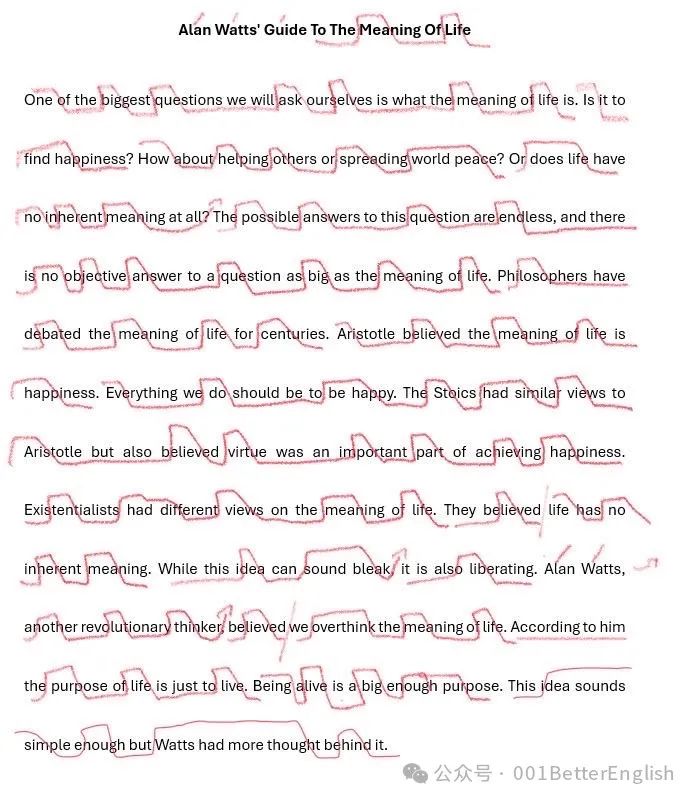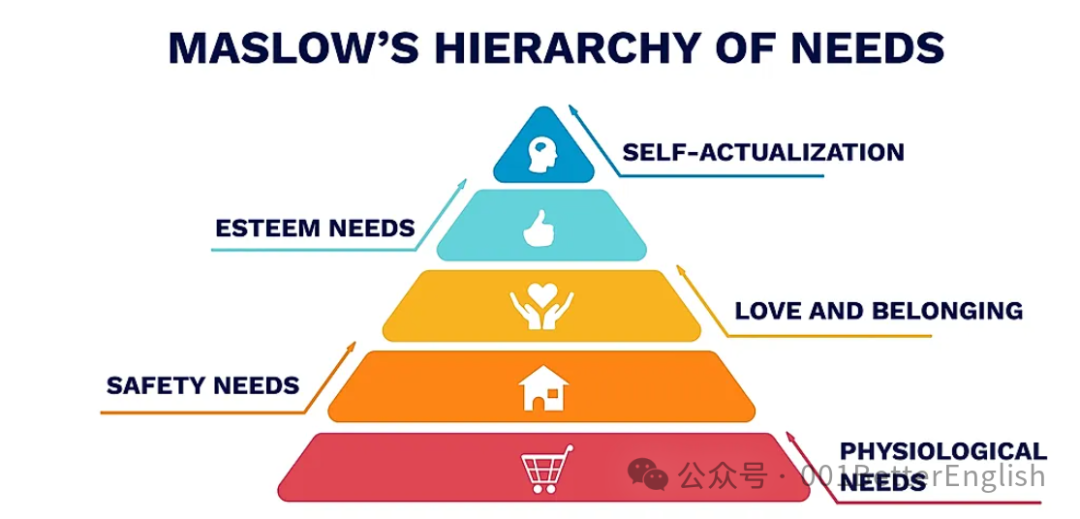倖福就是柴公尺油鹽
One of the biggest questions we will ask ourselves is what the meaning of life is. Is it to find happiness? How about helping others or spreading world peace? Or does life have no inherent meaning at all? The possible answers to this question are endless, and there is no objective answer to a question as big as the meaning of life. Philosophers have debated the meaning of life for centuries. Aristotle believed the meaning of life is happiness. Everything we do should be to be happy. The Stoics had similar views to Aristotle but also believed virtue was an important part of achieving happiness. Existentialists had different views on the meaning of life. They believed life has no inherent meaning. While this idea can sound bleak, it is also liberating. Alan Watts, another revolutionary thinker, believed we overthink the meaning of life. According to him the purpose of life is just to live. Being alive is a big enough purpose. This idea sounds simple enough but Watts had more thought behind it.

Improve Your Life6 Ways To Live A Better Life According To Alan Watts
Satisfaction From Belonging

According to Watts, one of the biggest problems with the search for the meaning of life is that we often overlook life. When we ask ourselves what the meaning of life is, we get so caught up in looking for an outside meaning that we ignore the world around us. Many people want to feel that their life amounted to something. This could mean joining a group with a particular cause. For example, a church can find a holy purpose or a nonprofit dedicated to giving food to vulnerable people. There is nothing wrong with these endeavors. Many of them do help the world. Watts merely points out that some people get a sense of satisfaction by pursuing belonging to a group with a purpose. This satisfaction gives their lives meaning. He questions why people get this feeling of satisfaction and what needs are being fulfilled.
On the one hand, Watts sees belonging to a group as fulfilling biological needs. Beyond immediate needs such as hunger, he points to needs such as the sense of love and the sense of self-expression in activity. However, Watts questions beyond these biological needs. He asks what these needs point to. At their core, these processes are just that—biological processes. The point of them is to continue the life of the organism. They don't provide a satisfactory explanation for Watts.
Watts goes on to question theology. Some people get meaning from their relationship with God. In many religions, the meaning of life is God. In this view, the relationship between the person and God is the most important. Watts pushes past this idea, too. He questions what people are yearning for in this relationship.
Significance Versus Satisfaction

When people talk about something giving meaning to their lives, they usually use words like significance. Watts suggests that while "significance" is a word many people naturally say, this isn't the right word. He uses the example of music to explain his idea. Sometimes, when people hear a song that moves them, they believe it is special. They might say it is significant or believe that the song has significance. However, Watts believes what people really mean is that the song is satisfying. When we can appreciate a song and believe it is significant, Watts says we are appreciating ordinary things. We are able to appreciate the ordinary things at this time because hearing a song that moves us puts us in a different state of mind. In this state of mind, we are able to see ordinary things as amazing and recognize them.
Appreciating the Ordinary

Appreciating the ordinary happens when we are mesmerized by something. Whether it's a song, dance, bird, or delicious meal, these moments are what Watts referred to as moments of deep spiritual experience. Different religions celebrate these moments. In Hinduism, they are referred to as Moksha or release. In Zen, these moments are called Satori. Watts explains that when we experience these moments, we are experiencing the world as it is. Instead of looking for an external meaning, we find it in the present moment, in the world around us. Nothing needs justification; we allow ourselves to simply experience the world in the present.
Allowing ourselves to enjoy the present allows us to feel joy. Watts points out that this is often the driving force behind activities that give us a sense of significance. For example, we listen to music or dance to feel joy. Watts questions why we are motivated to do these things. Some people enjoy singing out loud in the shower or playing ball with their dog. Why do we enjoy these activities?
Further, what is the point? Watts suggests having joy might make us want to continue the human race because living is fun. He further questions this idea by asking what the point of that is. Why continue the human race endlessly? He concludes that there is no purpose and that we just enjoy nonsense.
Who Are We?How To Reflect On Self And Ego According To Alan Watts
Just Enjoy Life

The takeaway message from Watts's philosophy on the meaning of life is that we should enjoy life. In today's world, we can easily be caught up in what we should or should not be doing. Many people spend their lives searching for the meaning they should live for. Watts's philosophy urges us to stop searching for meaning outside of life. Getting satisfaction out of ordinary phenomenon shows us life in itself is worth living for. We don't need a purpose designed for our lives. There is no meaning other than to live life. In the words of Allan Watts "It is in this kind of meaninglessness that we get the profoundest meaning."